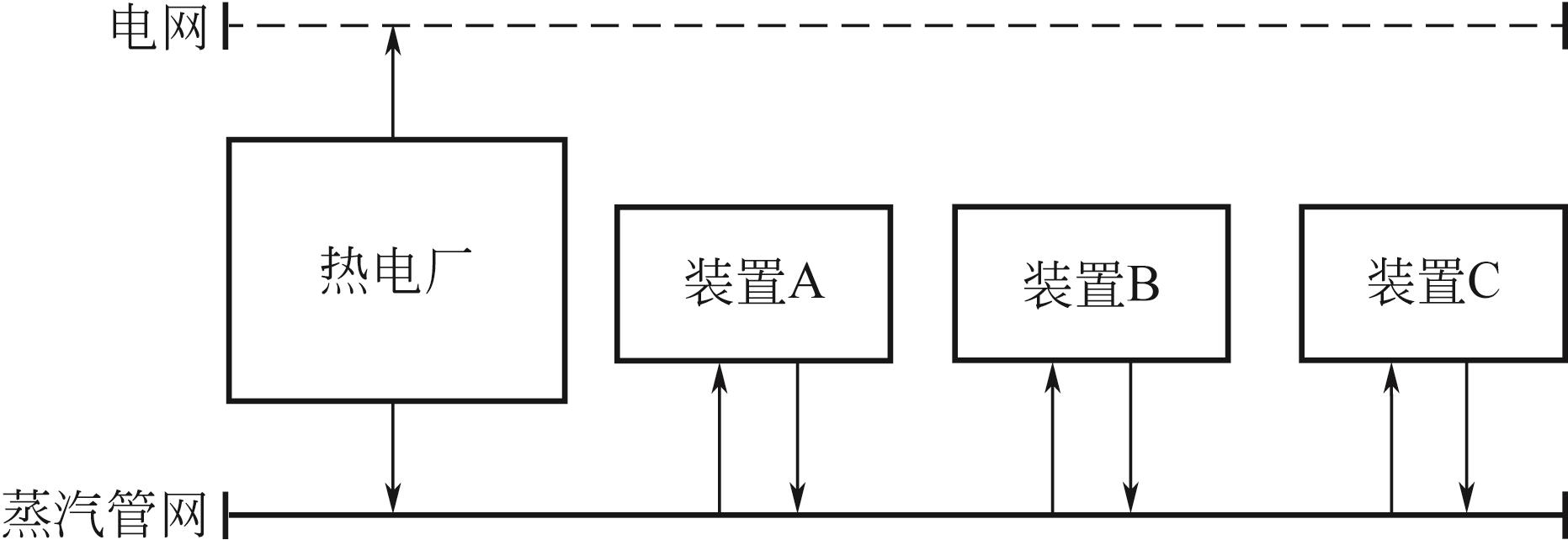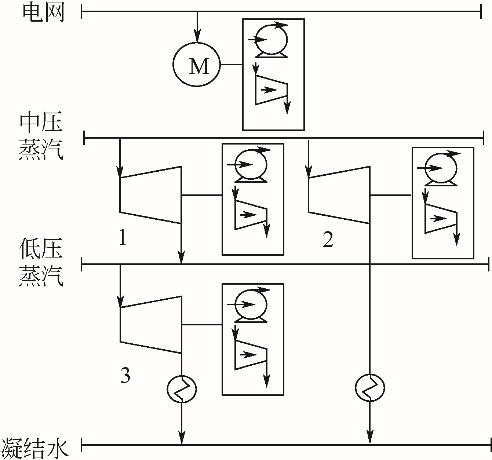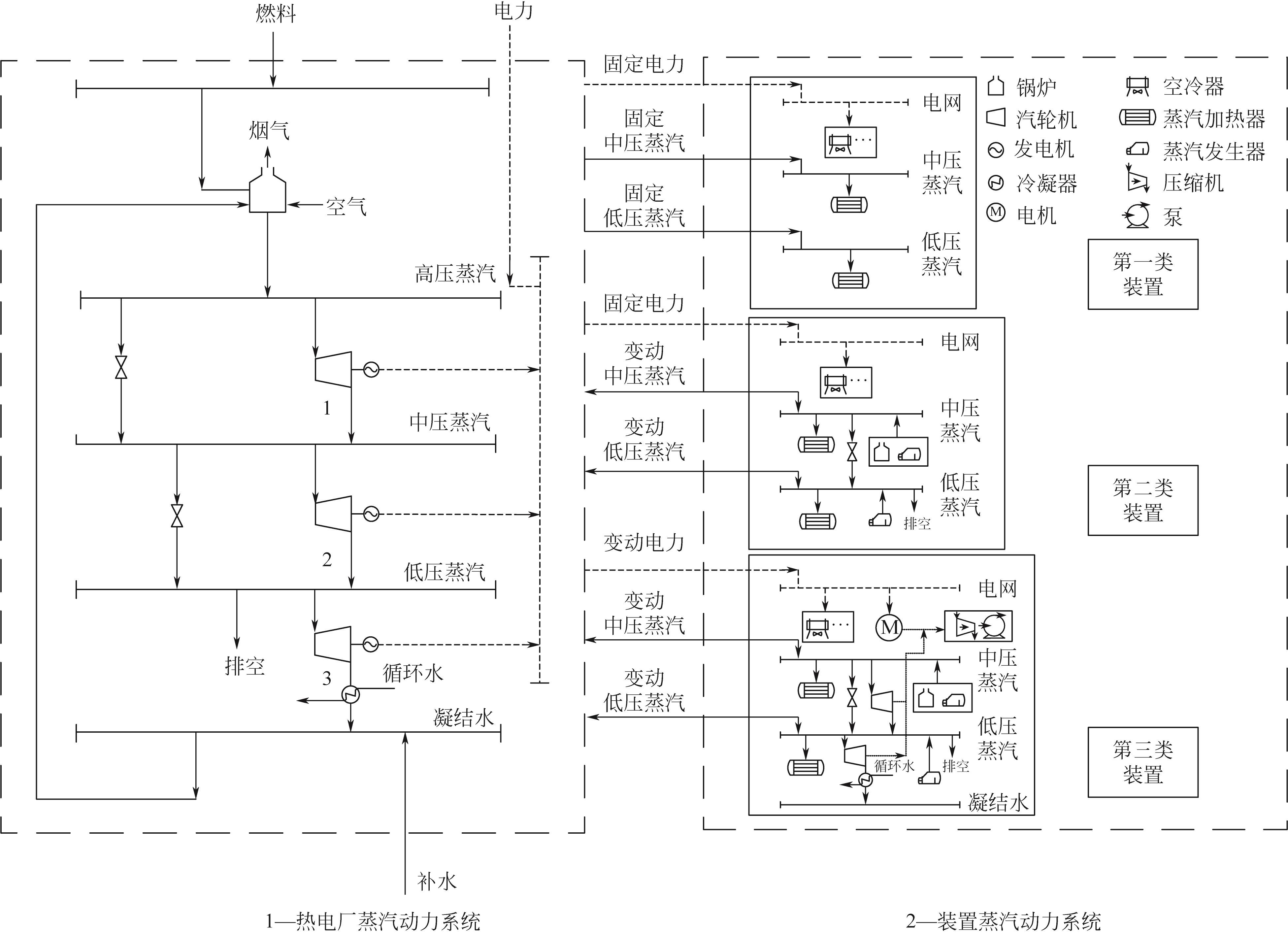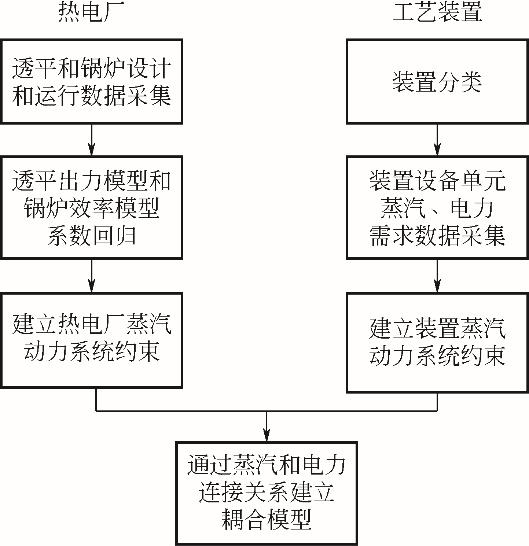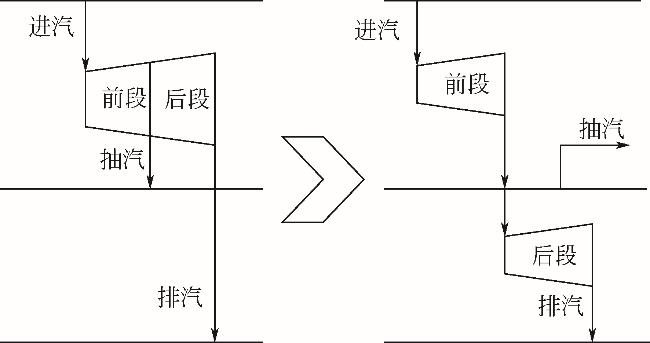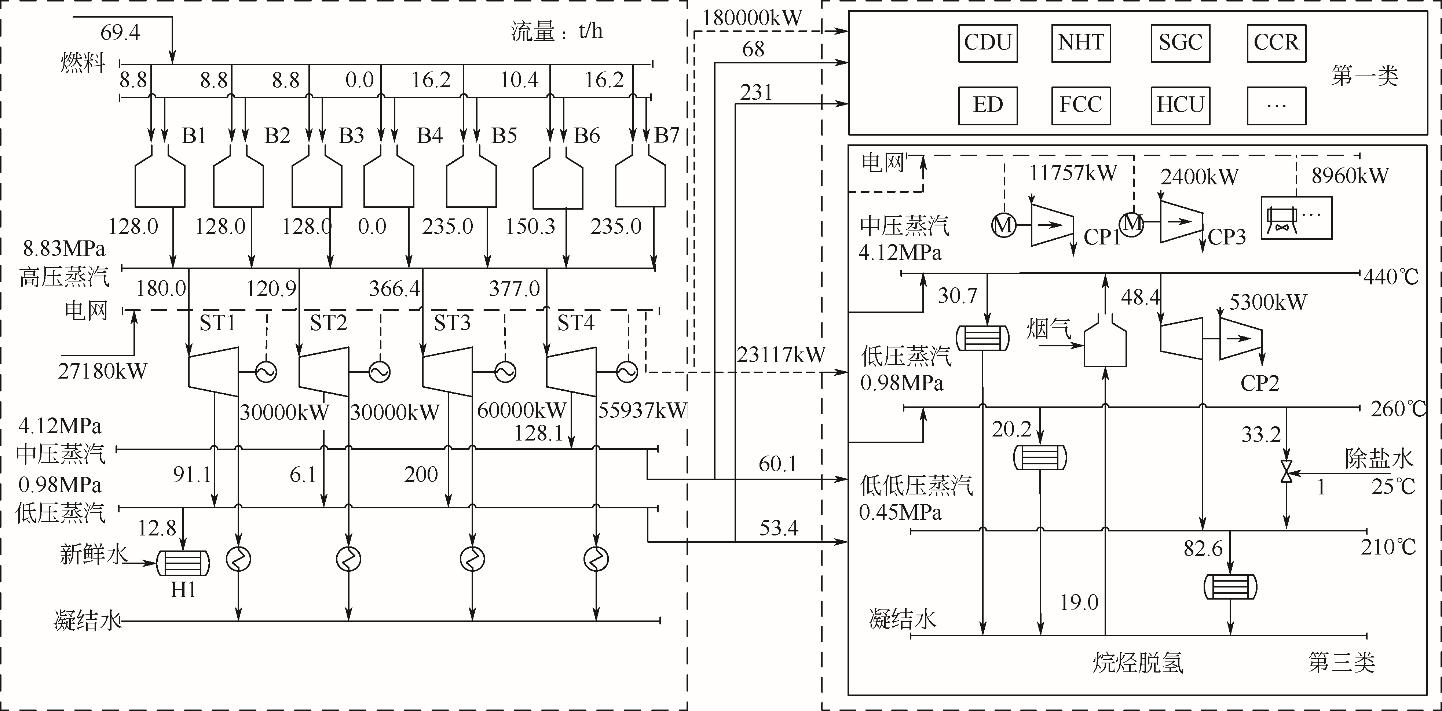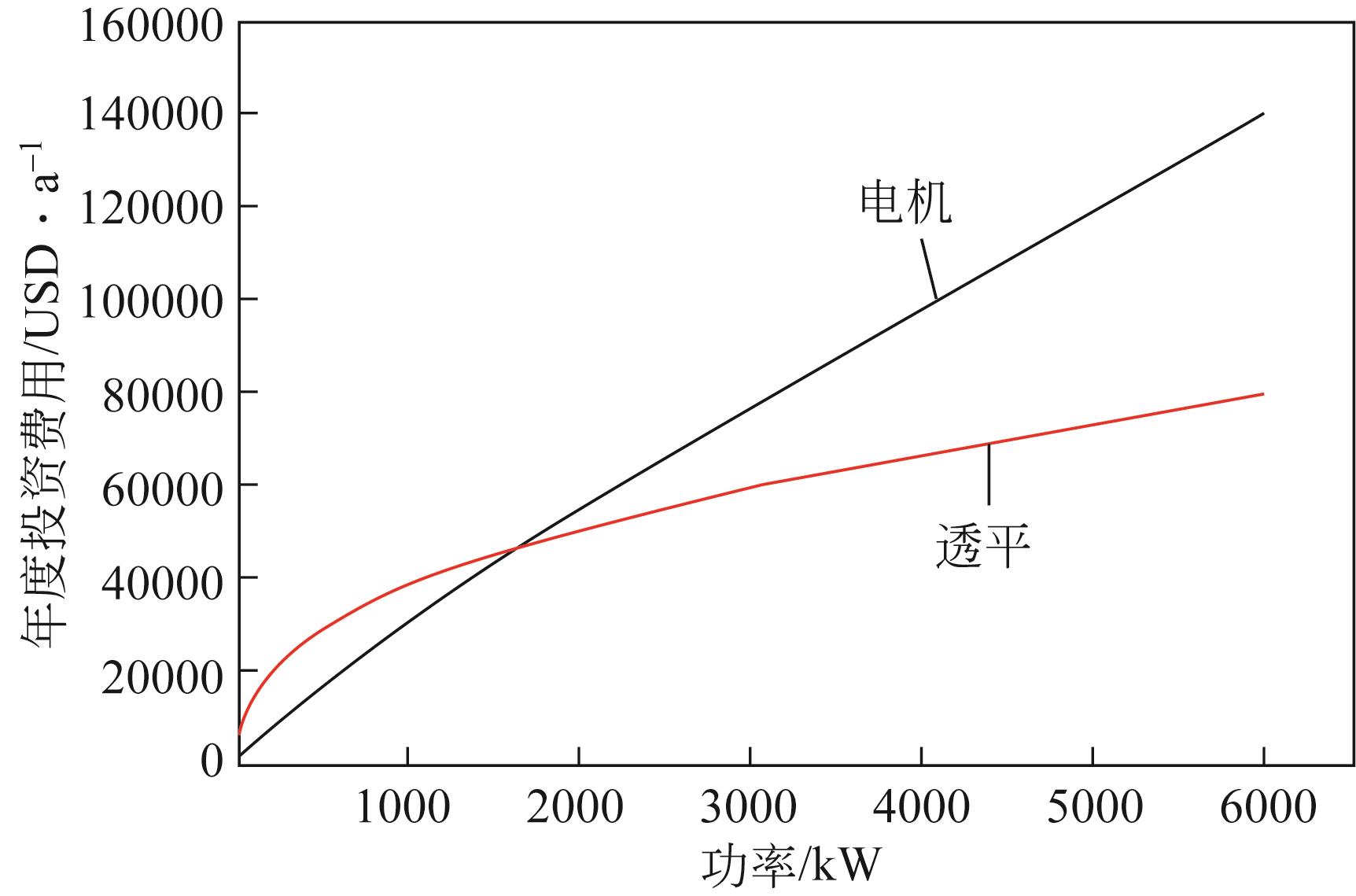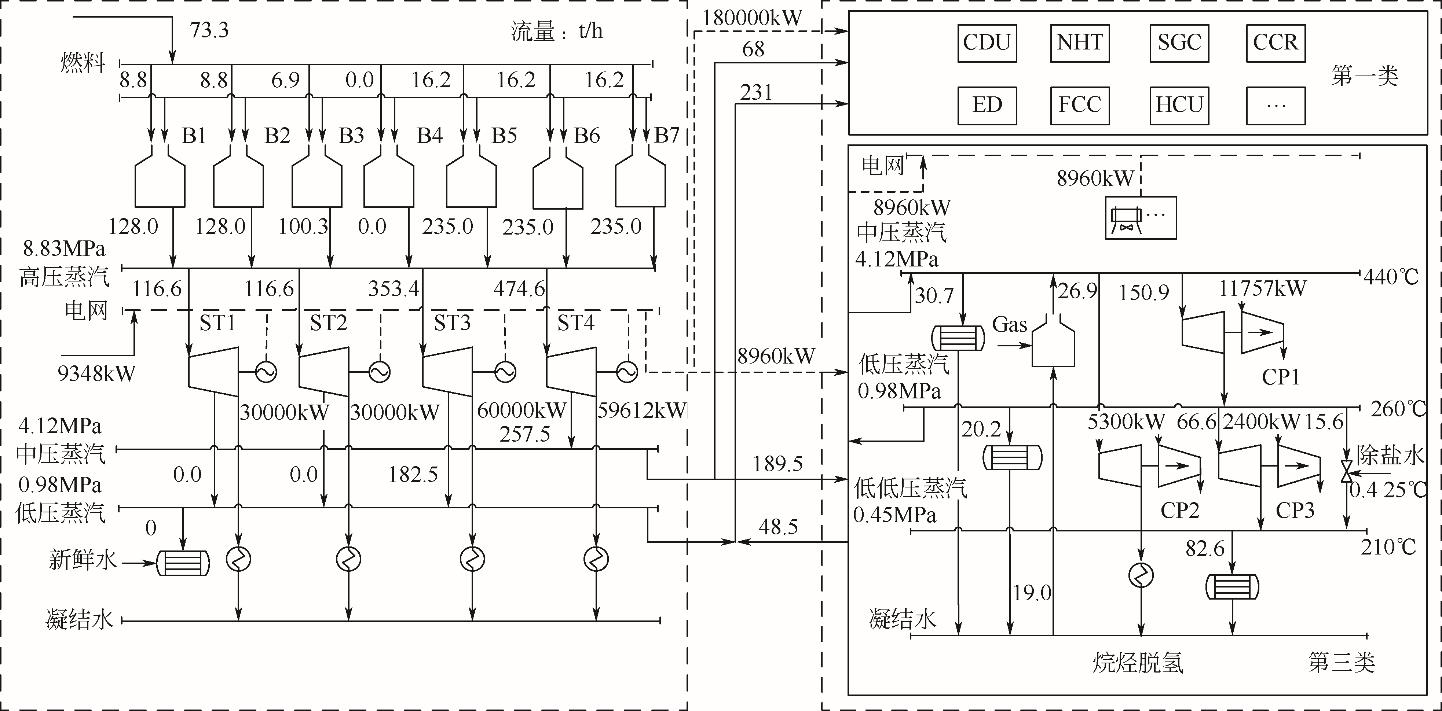| 1 |
CHOU C C, SHIH Y S. A thermodynamic approach to the design and synthesis of plant utility systems[J]. Industrial & Engineering Chemistry Research, 1987, 26(6): 1100-1108.
|
| 2 |
PAPOULIAS S A, GROSSMANN I E. A structural optimization approach in process synthesis-I. Utility systems[J]. Computers & Chemical Engineering, 1983, 7(6): 695-706.
|
| 3 |
BRUNO J C, FERNANDEZ F, CASTELLS F, et al. A rigorous MINLP model for the optimal synthesis and operation of utility plants[J]. Chemical Engineering Research & Design, 1998, 76(3): 246-258.
|
| 4 |
YI H S, YEO Y K, KIM J K, et al. A rule-based steam distribution system for petrochemical plant operation[J]. Industrial & Engineering Chemistry Research, 1998, 26: 1100-1108.
|
| 5 |
IYER R R, GROSSMANN I E. Optimal multi-period operational planning for utility systems[J]. Computers & Chemical Engineering, 1997, 21(8): 787-800.
|
| 6 |
戴文智, 尹洪超. 引入环境成本的石油化工企业蒸汽动力系统多周期运行优化[J]. 石油学报(石油加工), 2010, 26(3): 448-455.
|
|
DAI W Z, YIN H C. Optimization of multi-period operation of steam power systems in petrochemical plant with environmental costs[J]. Acta Petrolei Sinca, 2010, 26(3): 448-455.
|
| 7 |
CHEN C L, LIN C Y, LEE J Y. Retrofit of steam power plants in a petroleum refinery[J]. Applied Thermal Engineering, 2013, 61(1): 7-16.
|
| 8 |
罗向龙, 张高博, 王智, 等. 大型石化企业蒸汽动力系统运营优化[J]. 石油炼制与化工, 2009(5): 48-52.
|
|
LUO X L, ZHANG G B, WANG Z, et al. Operation optimization of steam power system in large petrochemical enterprises[J]. Petroleum Processing and Petrochemicals, 2009(5): 48-52.
|
| 9 |
BAI H B, LI S Y, WANG X P, et al. Design and optimization of multiple interconnected utility systems in an integrated refining and petrochemical complex[J]. China Petroleum Processing and Petrochemical Technology, 2020, 22(4): 126-136.
|
| 10 |
LI Z Q, DU W L, ZHAO L, et al. Modeling and optimization of a steam system in a chemical plant containing multiple direct drive steam turbines[J]. Industrial & Engineering Chemistry Research, 2014, 53(27): 11021-11032.
|
| 11 |
WU L, LIU Y, LIANG X, et al. Multi-objective optimization for design of a steam system with drivers option in process industries[J]. Journal of Cleaner Production, 2016, 136: 89-98.
|
| 12 |
SHANG Z, KOKOSSIS A. A transhipment model for the optimization of steam levels of total site utility system for multi-period operation[J]. Computers & Chemical Engineering, 2004, 28(9): 1673-1688.
|
| 13 |
MAVROMATIS S P, KOKOSSIS A C. Conceptual optimization of utility networks for operational variations - I: Targets and level optimization[J]. Chemical Engineering Science, 1998, 53(8): 1585-1608.
|
| 14 |
SHANG Z, KOKOSSIS A. A systematic approach to the synthesis and design of flexible site utility systems[J]. Chemical Engineering Science, 2005, 60(16): 4431-4451.
|
| 15 |
戴文智, 尹洪超, 池晓. 改进PSO算法在蒸汽动力系统多周期运行优化中的应用[J]. 化工学报, 2009(1): 112-116.
|
|
DAI W Z, YIN H C, CHI X. Application of improved PSO algorithm in multi-period operation optimization of steam power system[J]. CIESC Journal, 2009(1): 112-116.
|
| 16 |
杨旭中, 郭晓克, 康慧. 热电联产规划设计手册[M]. 北京: 中国电力出版社, 2009: 86.
|
|
YANG X Z, GUO X K, KANG H. Handbook of cogeneration planning and design[M]. Beijing: China Electric Power Press, 2009: 86.
|
| 17 |
MAVROMATIS S P, KOKOSSIS A C. Hardware composites: a new conceptual tool for the analysis and optimization of steam turbine networks in chemical process industries: part I: Principles and construction procedure[J]. Chemical Engineering Science, 1998, 53(7): 1405-1434.
|
| 18 |
ZHANG B J, LUO X L, CHEN X Z, et al. Coupling process plants and utility systems for site scale steam integration[J]. Industrial & Engineering Chemistry Research, 2013, 52(41): 14627-14636.
|
| 19 |
SEIDER W D, SEADER J D, LEWIN D R. Product and process design principles: Synthesis, analysis and evaluation[M]. 4 th ed. New York: John Wiley & Sons Inc., 2017: 512.
|
| 20 |
CHEN C L, LIN C Y. Design and optimization of steam distribution systems for steam power plants[J]. Industrial & Engineering Chemistry Research, 2011, 50(13): 8097-8109.
|
 ), ZHU Weixuan, YE Haotian, DONG Hongguang(
), ZHU Weixuan, YE Haotian, DONG Hongguang( )
)
